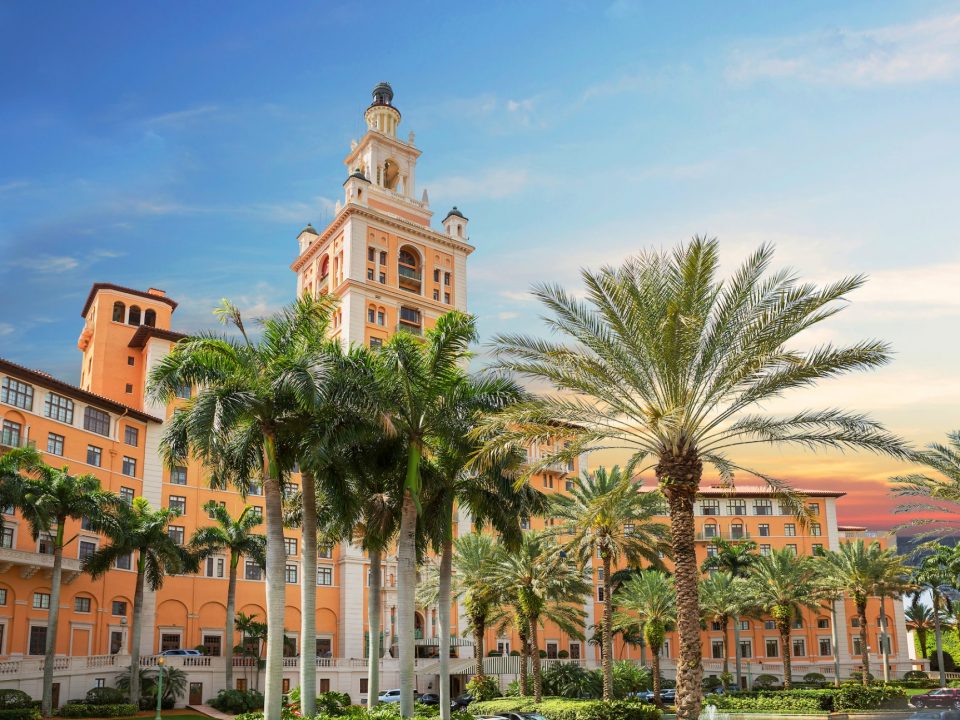![]()
Will Florida’s hotel industry, which powers so much of its economy, face the same devastation its real estate industry suffered during the Great Recession?
At the moment, hundreds of regional hotels are facing a dead stop in revenues because of the coronavirus pandemic. According to STR, a hospitality data tracking company, the COVID-19 crisis has shuttered more than 236 of the 473 properties the firm tracks in Miami-Dade and 24 of 284 in Broward.
But experts say there is still too much uncertainty to make any predictions.
Read more here: https://www.miamiherald.com/news/business/article242266321.html#storylink=cpy
“You can’t come up with a number on the damage to [the hotel] business, or truly assess the financial picture, until you figure out when and how you’re going to open for business again,” said Suzanne Amaducci-Adams, Miami-based real estate attorney at Bilzin Sumberg.
Read more here: https://www.miamiherald.com/news/business/article242266321.html#storylink=cpy
While the Greater Miami Convention and Visitors Bureau hopes local hotels may be able to open in late June, how quickly travelers will be ready to return is unclear.
Industry watchers began sounding the alarm last week, when Jeffrey Soffer’s 1,600-room Miami Beach Fontainebleau Resort — known for glitzy events including concerts by Lady Gaga and Maroon 5 — said it was working to renegotiate a nearly billion-dollar loan through a process called “special servicing.”
It isn’t alone. At least 10 other Florida hotels financed through commercial mortgage-backed securities — publicly traded pools of loans known as CMBS — also entered special servicing in April, according to Trepp, a data tracking group. The other South Florida hotel on the list is the DoubleTree (formerly Crowne Plaza) Resort in Hollywood.
“[That many special servicings] is definitely unusual,” said Kevin Fagan, director of CMBS/CRE Research in the Commercial Real Estate Finance Group at Moody’s. “That only happens during a crisis. It’s indicative of what’s going on right now.”
According to Trepp, the Fontainebleau was current on its payments as of April 6.
“As any prudent owner, we have reached out to our lenders, bondholders, and servicers to engage in discussion surrounding modifications to our loan documents during these unprecedented times,” said Brett Mufson, president of Fontainebleau Development in an undated note accompanying Trepp’s report on the property’s special servicing. “This by no means should be interpreted as our loan being in default or that we are behind on any payment.”
As of April 6, the DoubleTree’s payment was fewer than 30 days late. Its sponsor, Virginia-based Sotherly Hotels, a real estate investment trust, has seen its share price plummet since the onset of the pandemic from about $6.70 to $2.08. A representative for Sotherly did not respond to a request for comment.
The CMBS negotiations may be an advance ripple of a rising wave. Shares in publicly traded hotel companies have plummeted by more than 35% since the beginning of 2020, according to the Baird/STR hotel stock index, and profits of U.S. hotels dropped by more than 100% in March. In Miami-Dade, total revenue per available room dropped by 54% during the month, while gross operating profit per available room dropped by 81.5%.
Rich Lillis, head of brokerage Colliers’ hotel service and an analyst based in South Florida, said many lenders are granting as much as 90 days of forbearance to borrowers. Until that period ends, he said, the landscape will not be fully understood.
Hotel values were at all-time highs prior to the COVID-19 disruption — a different era.
“We expect relative hotel values will decline somewhat as a result of the unprecedented COVID-19 disruption — both from an interruption of income standpoint, and a change in risk factor in the short term in form of rising capitalization rates,” Lillis said in an email.
“Clearly as hotel owners seek to negotiate with their lenders — in many cases lenders will require new capital be invested into the asset capital structure to reduce the amount of leverage in the face of somewhat lower asset values,” he said.
Moody’s Fagan says many hotels — especially those in the middle market — may struggle to survive the current crisis. “There’s a very large percentage of hotel loans out there that don’t have the wherewithal to survive for more than (four) months,” he said.
Amaducci-Adams declined to speculate on which South Florida hotels are most at risk, but said those whose revenues are tied to large conventions are going to suffer most.
“Large group business is not going to come back for a while,” she said, “until there’s a vaccine or some other situation.”
While deep-pocketed backers may have access to “dry-powder” equity available as rescue capital, Lillis notes that many loans may be structured “as non-recourse debt,” which means the lender can seize the property in default but cannot seek out the borrower for additional funds. In those cases, borrowers may choose bankruptcy rather than investing more cash.
“Much depends on the posture of lenders as this unprecedented disruption works through at the asset level,” he said.
The hotel industry is asking Congress for assistance. In a letter to leading Democratic and Republican members of Congress, the American Hotel & Lodging Association indicated the industry would need aid beyond Paycheck Protection Program loans to keep the lights on.
“The maximum loan under the PPP, defined as 250% of average monthly payroll costs for the prior calendar year, is insufficient for the hotel industry,” it said. It goes on to ask that the limit be increased to 800%.
For the 150,000 local jobs supported by the industry, the financial woes are already taking a significant toll. The state of Florida has published formal layoff announcements for some three dozen hotels in Miami-Dade, including the Trump Doral, Eden Roc, Mandarin Oriental and Marriott Marquis. Publication of notices often lags worker discharge.
The Fontainebleau is one of the area’s few local lodgings whose workers are unionized.
Unite Here, which represents the Fontainebleau’s workers, said all its 1,100 members were furloughed in late-March and not given any severance.
“That, frankly, isn’t different from many of the other hotels,” said Wendi Walsh, secretary-treasurer of South Florida’s Unite Here Local 355.
“The thing that is very concerning to us is that as of this moment, [the Fontainebleau has] not made their contribution to the pension fund on behalf of those workers that was due April 10. Nor have they made contribution to the health insurance of those workers.”
The hotel also has not paid contributions based on hours worked to the hospitality training fund, she said.
“Employees worked in March and they were supposed to make a contribution the first 10 days of April, same as health insurance, and they failed to do so,” Walsh said.
“
A representative for Fontainebleau did not respond to comment on this issue.
Ketty Toussant-Rene, a steward at the Fontainebleau for three years, has three children, ages 12, 22, 24, and helps support them all. She pays $1,200 rent for a two-bedroom house in North Miami but was unable to pay rent in March or April. She won’t make May’s payment, either.
She was furloughed March 19 and applied for unemployment, but has not received it yet. She also has not received her stimulus check.
“It’s a very hard situation for me and my family. I live paycheck by paycheck. My last day of work was March 19, and they told me not to go back because of coronavirus. They haven’t paid us anything and now they are talking about canceling our health insurance. That is crazy. This is when we need insurance the most.”
Read more here: https://www.miamiherald.com/news/business/article242266321.html#storylink=cpy




